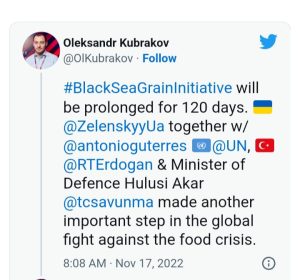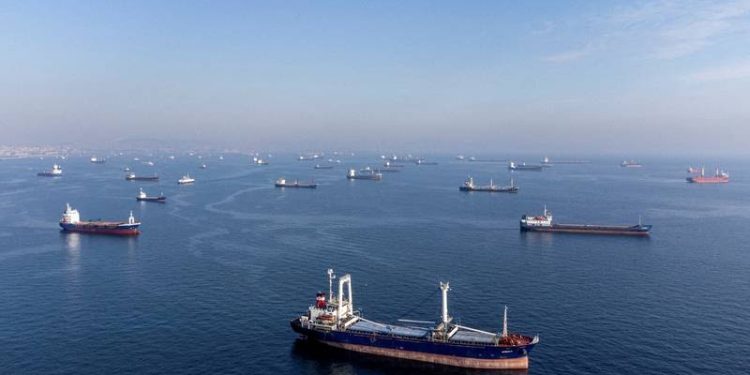By Oyintari Ben
Oleksandr Kubrakov, Ukraine’s Minister of Infrastructure announced on Thursday that a Black Sea grain initiative that was due to terminate on Saturday will be extended for 120 days.
The minister tweeted that the “Black Sea grain initiative would be extended for 120 days.”

The UN-mediated agreement took effect in July in response to warnings that a suspension of exports from Ukraine may result in severe worldwide food shortages and starvation.
According to the ministry, an agreement was made in Istanbul to prolong the initiative.
As long as the war with Russia rages on, the agreement ensures that grain exports from Ukraine will be safely routed through specific Black Sea ports.
Under the arrangement, which was also mediated by Turkey, many million tonnes of grain have been exported.
The project “continues to illustrate the necessity of quiet diplomacy in the framework of seeking multilateral solutions,” according to UN Secretary-General Antonio Guterres.
In order to facilitate the safe navigation of the shipment of grain, foodstuffs, and fertilizers from Ukraine, he stated, “I applaud the agreement by all parties to continue the Black Sea Grain Initiative.”
He continued, “The United Nations is fully committed to helping the Joint Coordination Centre to ensure the continued seamless operation of this crucial supply line.” The Russian Federation’s remaining export restrictions on food and fertilizers will be completely removed by the United Nations.
Both of the accords, which were reached in Istanbul three months ago, are crucial for lowering food and fertilizer prices and preventing a world food crisis, he added.
Wheat prices have increased by 50% since 2021, although they have subsequently stabilized, in part due to the Black Sea grain effort.
According to UN statistics, more than 10 million metric tonnes of grain and other food supplies have been sent by roughly 500 ships to the world’s poorest nations as part of the project.



































